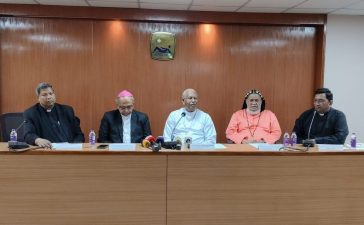Judiciary Strengthens Educational Autonomy for Minority Colleges
Landmark Verdict Strengthens Autonomy of Minority Educational Institutions
In a significant ruling that reinforces the constitutional rights of minority institutions, the Madras High Court has declared that the University Grants Commission (UGC) Regulations, 2018, regarding the appointment of teaching faculty, do not apply to minority-run educational institutions. The court upheld the fundamental right of minorities to establish and administer their own institutions without undue interference.
Court Sides with Minority Colleges
Justice N Anand Venkatesh delivered the verdict in response to petitions from five prestigious minority autonomous colleges—Women’s Christian College, Madras Christian College, Loyola College, and Stella Maris College in Chennai, along with Sacred Heart Arts and Science College in Tindivanam. These institutions challenged the refusal of the University of Madras and Annamalai University to approve the appointment of 66 assistant professors and a principal on the grounds that the selection process did not conform to UGC Regulations, 2018.

Ruling in favor of the petitioners, the court emphasized that these regulations infringe upon the rights granted under Article 30(1) of the Constitution, which guarantees minorities the right to establish and administer educational institutions of their choice. “The UGC Regulations directly interfere with the overall administrative control of the management, thereby diluting the fundamental rights of minority institutions,” Justice Venkatesh stated.
Universities Directed to Approve Appointments
As a result of the ruling, the court directed the concerned universities to grant approval to the appointments made by the colleges, provided the selected candidates meet the necessary qualifications and experience. The universities were given four weeks to comply with the order.
Senior counsel Isaac Mohanlal, representing the petitioner colleges, argued that mandating a selection committee as per the UGC norms violated the rights of minority institutions. On the other hand, Additional Solicitor General ARL Sundaresan, representing the UGC, contended that all institutions, including minority-run ones, must follow a uniform selection process.
Judiciary Stands as Guardian of Minority Rights
Justice Venkatesh underscored the judiciary’s responsibility to protect the rights of minority communities, reminding that the Constitution was designed to safeguard their cultural and educational autonomy. “This provision was not merely a legal formality; it was a promise made by the framers of the Constitution to protect the cultural and educational identities of minority communities,” he noted.
With this ruling, the Madras High Court has reaffirmed its commitment to upholding justice and equality, ensuring that the rights of minority institutions remain intact. This landmark judgment strengthens the autonomy of educational institutions, preserving the integrity of constitutional guarantees for generations to come.
Statements:
-
Justice N Anand Venkatesh (Madras HC): “The UGC Regulations directly interfere with the administrative control of minority institutions, diluting their fundamental rights.”
-
Senior Counsel Isaac Mohanlal (Petitioners’ Representative): “Mandating a selection committee under UGC norms violates the constitutional rights of minority institutions to govern their own affairs.”
-
Additional Solicitor General ARL Sundaresan (UGC Representative): “All institutions, including those run by minorities, must follow a uniform selection process.”
-
Educational Expert: “This judgment strengthens the autonomy of minority institutions and upholds their long-standing constitutional protections.”
-
Minority College Representative: “This is a victory for educational freedom. We can now continue hiring faculty based on our principles and institutional values.”
Q&A:
Q: What did the Madras High Court rule regarding UGC norms and minority institutions?
A: The court ruled that UGC’s 2018 faculty appointment regulations do not apply to minority institutions, as they infringe on their constitutional rights under Article 30(1).
Q: Which institutions challenged the UGC norms?
A: Five prestigious institutions—Women’s Christian College, Madras Christian College, Loyola College, Stella Maris College (all in Chennai), and Sacred Heart Arts and Science College (Tindivanam).
Q: Why did universities reject the appointments made by these colleges?
A: The universities refused approval because the selection process did not conform to UGC’s mandated selection committee structure.
Q: How did the court justify its decision?
A: The court cited constitutional provisions that guarantee minorities the right to establish and administer their own educational institutions without external interference.
Q: What happens next?
A: The universities must now approve the faculty appointments within four weeks, provided the selected candidates meet the required qualifications and experience.
Context & Background:
-
What is Article 30(1)? It guarantees minorities in India the right to establish and administer educational institutions of their choice, ensuring autonomy in governance.
-
Why is this ruling important? It prevents the government from imposing uniform regulations that could dilute the independence of minority institutions.
-
Previous Court Precedents: The Supreme Court and division benches have consistently upheld the rights of minority institutions to self-governance.
-
Impact on Higher Education: The verdict sets a precedent that minority institutions cannot be subjected to blanket regulatory frameworks without considering their constitutional protections.
#MinorityRightsUpheld #EducationFreedom #MadrasHCRuling #VictoryForAutonomy #UGCRegulations #HigherEducation #JusticeServed
![]()











